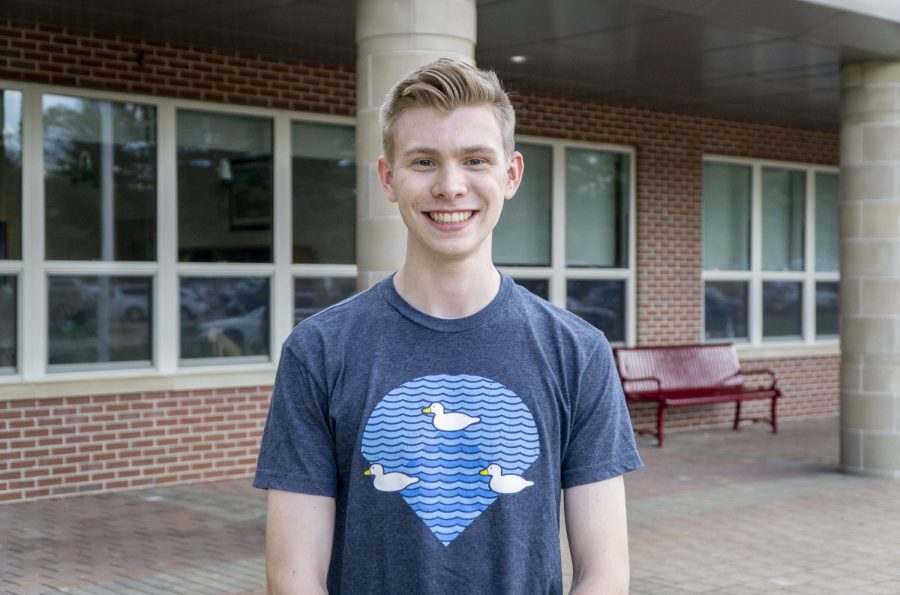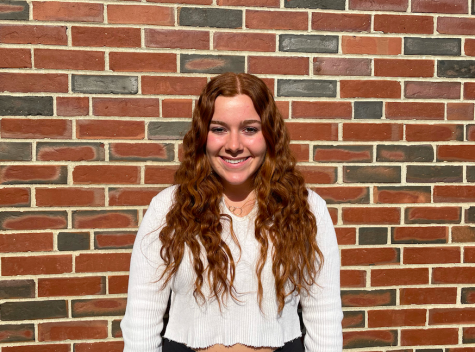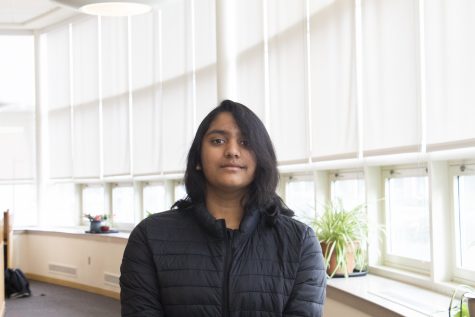Junior creates youth activism collective, takes action on social issues
Junior Noah LaBelle created the Massachusetts Youth Activism Collective, which takes action on social issues by connecting students across the state and conditioning them to become leaders in social change.
May 23, 2022
Junior Noah LaBelle turned his passion into action by creating the Massachusetts Youth Activism Collective (MYAC), an organization that connects students across the state and conditions them to become leaders in social change.
Beginning in the spring of 2021, LaBelle was able to kickstart his initiative with months of planning and the help of others. Early on in the process, juniors Sara Medina, Sarah Coldwell, Rajat Lakapragada and Fred Probst joined LaBelle as co-leaders to help run the organization. The group holds virtual Zoom meetings every other Sunday to discuss and plan courses of action in response to current societal problems.
LaBelle was initially motivated to start this youth collective because of his participation in the Mascot Study Group, which explored retiring Algonquin’sTomahawk mascot. In this group, LaBelle researched the drawbacks of Native American mascots and contributed to the recommendation to change the mascot.
“The experience opened my eyes as to why there aren’t more ways for students’ voices to be heard, not only on this topic alone but on a multitude of other topics,” LaBelle said.
LaBelle created MYAC as a place where students could work together to change social issues. The group is currently tackling issues about mental health, racism, health care and climate change.
“It’s sometimes easy to look at all the problems there are in society right now and think everything is too all-encompassing and too hard to really address, but what we’re hoping to do with this group is to narrow down that list of four issues even further and put all of our group’s energy behind it,” LaBelle said.
Co-leader Medina is particularly passionate about exploring mental health issues and advocating for teenagers who are struggling with mental health.
“I feel like [mental health is] a big problem, especially in our age group, and it can be addressed on a smaller scale within our community,” Medina said. “It doesn’t have to be a global discussion in order to make a difference in our community.”
The group currently has approximately 40 members from both private and public schools in communities as far away as Boston, but LaBelle hopes to gain more MYAC members who are interested in student activism. He has already connected with people from other communities through his church youth group and Boy Scouts troop.
“I want to get to a point where we have even more members representing an even more diverse community, both from a geographic perspective but also from different racial groups and people with different socioeconomic statuses,” LaBelle said.
So far, the collective has hosted two community leaders as guest speakers: a civic engagement activist from Tufts University and another speaker from Primary Source, an education nonprofit in Massachusetts that impacts over 120,000 students annually.
“The speakers helped us realize that everybody has a role to play and can bring their own skills into this sort of work,” LaBelle said.
According to Medina, LaBelle uses his passion for student activism to lead and inspire others to create change in their community.
“Noah puts in a lot of effort and definitely has the qualities of a leader,” Medina said. “He listens to everyone’s opinions while also implementing his own ideas.”
Those interested in joining MYAC or learning more about the collective’s initiatives should visit the organization’s website.
“I think it’s really important that this isn’t just an Algonquin initiative alone,” LaBelle said. “We want to be able to make an impact on multiple communities across the state instead of just specifically Northborough and Southborough.”











